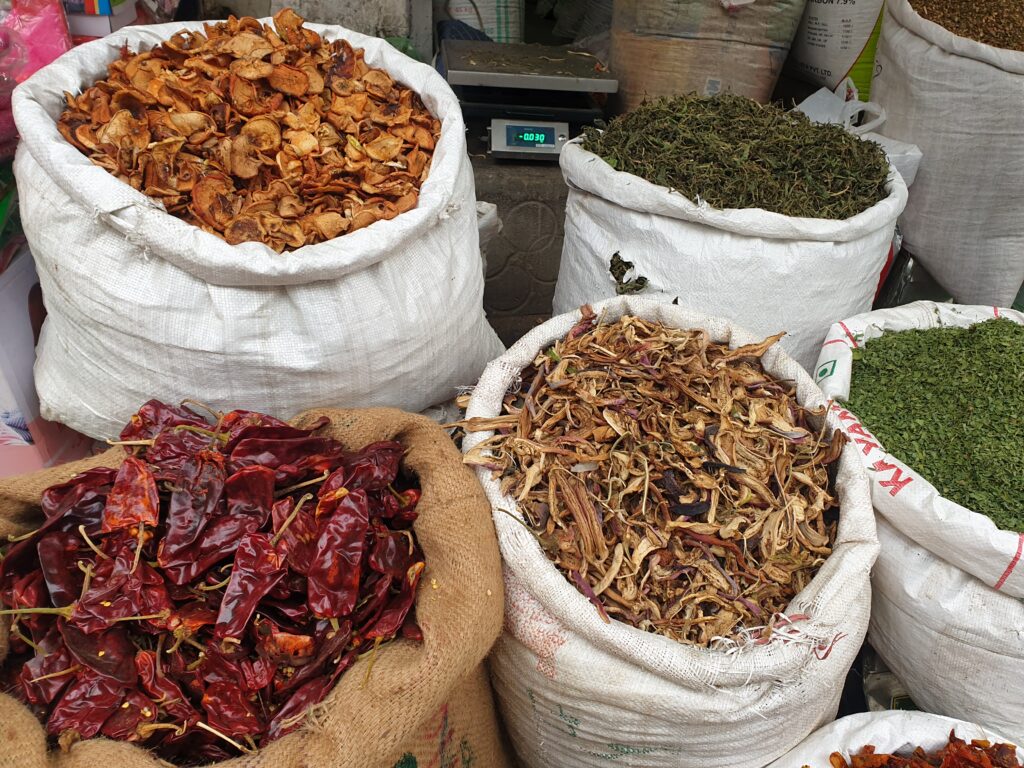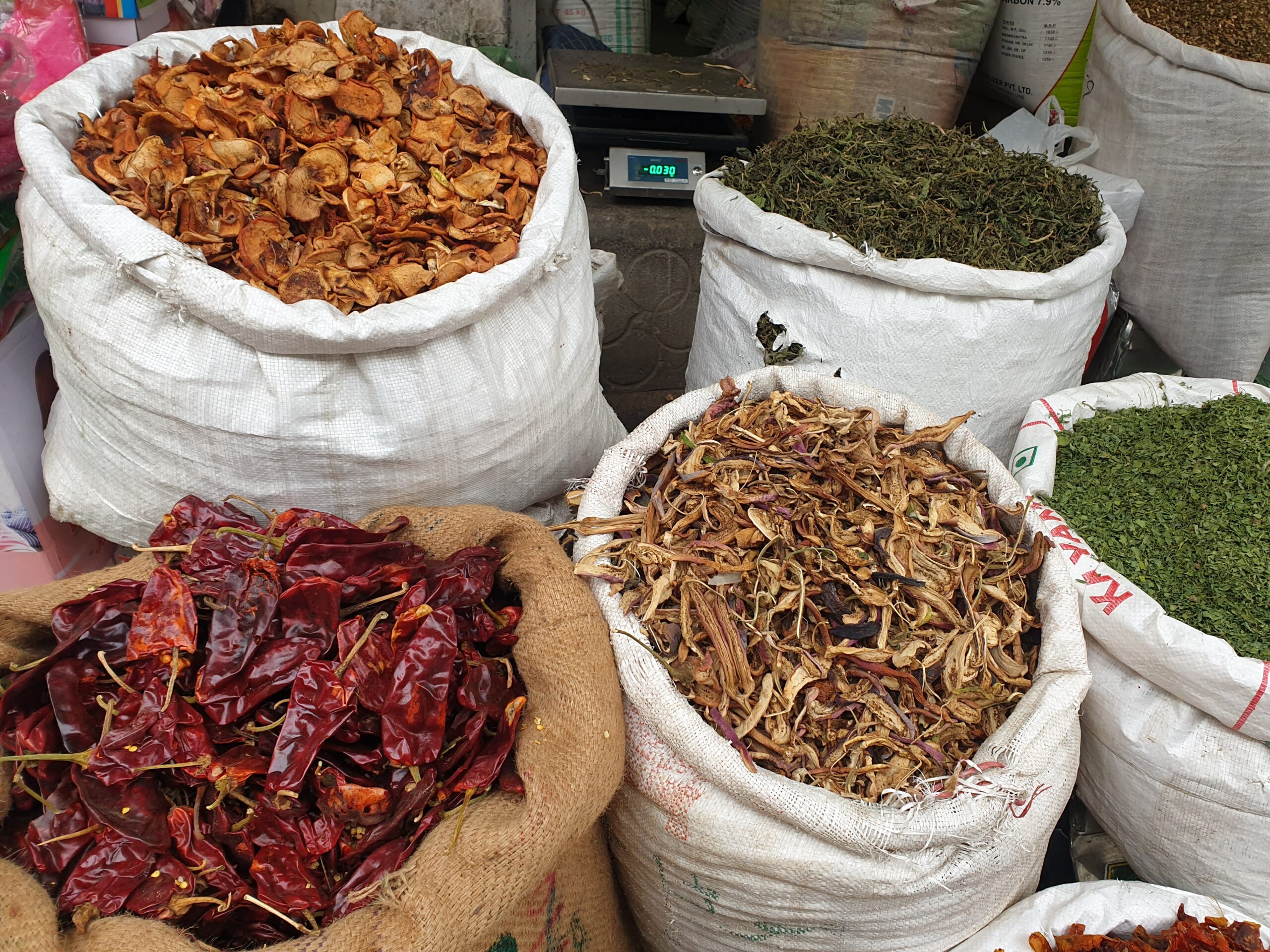In the northern landscapes of Kashmir, the age-old custom of savoring sun-dried vegetables persists. Journeying from Bandipora to Kupwara, one can witness the cultural significance of brinjals, gourd, turnips, and more, as locals steadfastly uphold a centuries-old practice in the midst of changing times.
By Sajid Raina
The enduring and time-honored tradition of Hokh Syun, a culinary practice unique to the picturesque landscapes of Kashmir, gracefully infiltrates the heart and soul of both rural and urban kitchens. This gastronomic ritual imparts a fragrant essence to the air, emanating from winter dishes meticulously crafted from an array of sun-dried fruits and vegetables harvested during the preceding summer.
Hokh Syun, with its distinct culinary alchemy, involves the meticulous process of soaking carefully preserved sun-dried produce in steaming hot water until they swell, followed by a symphony of sautéing in a harmonious blend of oil and spices. The resultant creation is a medley of flavours that encapsulate the very essence of winter comfort for the resilient people of Kashmir, braving the harshness of Chillai Kalan, the most intense winter period in the region.
For Kashmiri farmers such as Hafeeza Bano in the northern expanse of Bandipora district and Dilshada Begum from Baba-Wayil village in Kangan, Hokh Syun is not merely a tradition but a providential boon. These diligent farmers engage in the practice of sun-drying surplus vegetables from their bountiful gardens, consuming a portion and judiciously selling the remainder during the winter months. The economic advantages of selling Hokh Syun significantly outweigh the prospects of vending fresh produce during the summer, marked by lower prices due to abundant supply.
“Despite the ubiquity of fresh produce throughout the year, Hokh Syun continues to be an integral part of Kashmiri kitchens, a tradition born out of necessity in the face of severe winters that has transcended time and space, becoming a cultural touchstone,” asserts Hafeeza.

The demand for Hokh Syun extends beyond the confines of local markets, resonating with the Kashmiri diaspora who carry these sun-dried delicacies with them to distant lands. Vendors like Abdul Ahad in Hazratbal witness an unceasing demand, with sales scaling new heights each passing year. Ahad underscores the enduring nature of this tradition, emphasizing that the consumption of sun-dried vegetables during winters is a centuries-old practice, experiencing a surge in demand from late December to February.
In the northern regions of Kashmir, spanning Bandipora, Baramulla, and Kupwara, the age-old practice of consuming locally produced sun-dried vegetables—brinjals, gourd, turnips, spinach, and tomatoes—during winters is deeply rooted in the cultural tapestry, tracing back centuries. This culinary tradition isn’t confined to the valley alone; even in places like Kargil, Leh, and Jammu, there is a discernible demand for sun-dried vegetables, attesting to the widespread popularity of this Kashmiri culinary heritage.
A vegetable seller in Hazratbal sheds light on the diverse varieties of sun-dried vegetables favored by the people, especially during the bone-chilling winter. These include Ruwangan Hache (Dried Tomatoes), Al-Hache (Bottle Gourd), Nader Hache (Lotus stems), Hokh Gaad (Dried Fishes), Wangan Hache (Brinjal), and Gogji Hatche (Turnip).
Meanwhile, health experts caution that while consuming sun-dried vegetables once or twice a week during winters is generally considered safe, daily indulgence should be avoided. Proper drying and storage techniques are emphasized to ensure safety. The experts advise vigilance against any signs of fungus on sun-dried veggies, as it may harbour harmful toxins that pose health risks, including an increased likelihood of cancer. Therefore, they recommend savouring sun-dried vegetables in moderation, with meticulous attention to preparation and storage practices for a safe culinary experience.


Comments are closed.